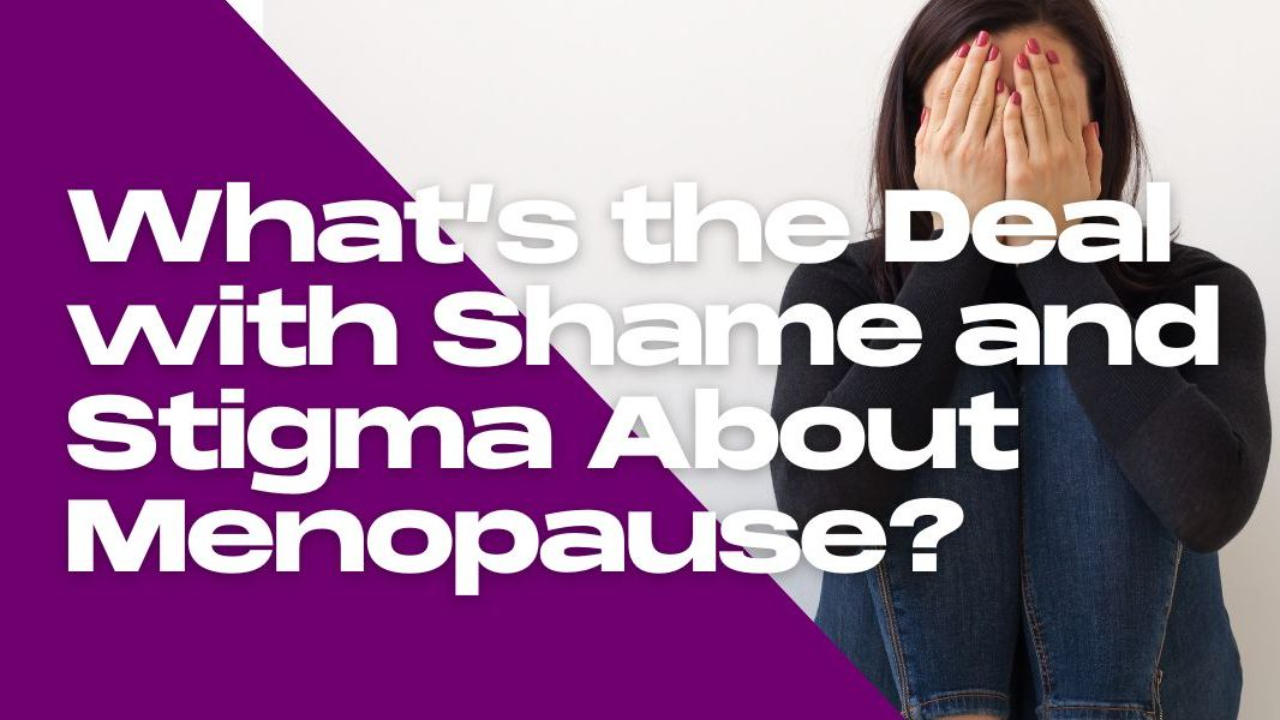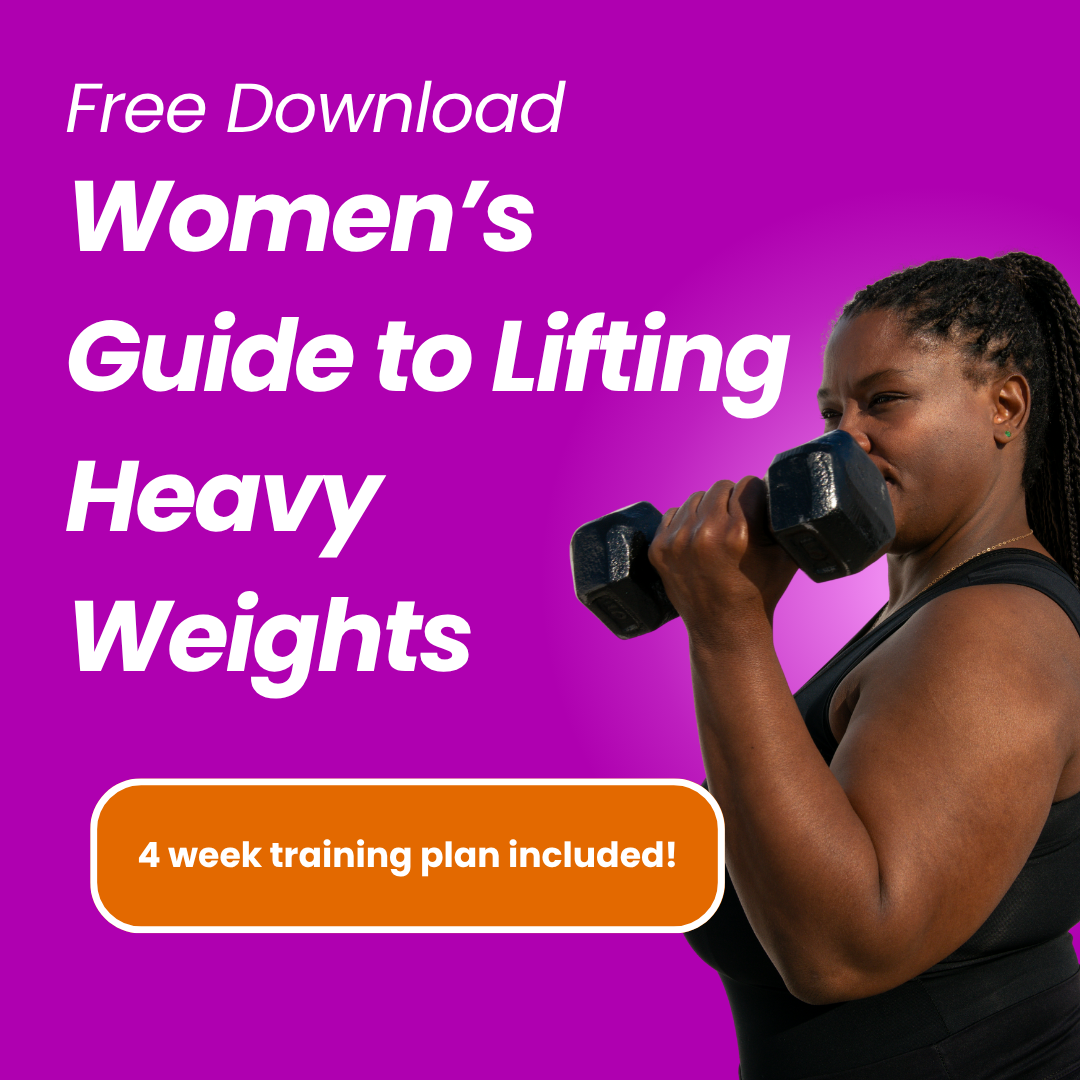
What’s the Deal with Shame and Stigma About Menopause?
Oct 30, 2023
Many of us have felt these emotions. But why?
By Selene Yeager
Shame is defined at dictionary.com as “a painful feeling of humiliation or distress caused by the consciousness of wrong or foolish behavior.” Stigma? That’s “a mark of disgrace associated with a particular circumstance, quality, or person.”
So why in the hell do women feel either of those things about menopause?
It’s something I think about a lot, because honestly, even after three years of writing, talking, researching, podcasting, and presenting about menopause, I still sometimes experience those feelings, despite the fact that I, like you, have done nothing wrong, nor do I find this phase of life in any way “disgraceful.” In fact, I feel quite the opposite about it. It’s been liberating, empowering, and in many ways overwhelmingly positive.
Yet despite all that, I still wrestle with these feelings sometimes. And I know I’m not alone. Others have shared similar sentiments, often in whispered tones. Researchers have documented it. A study published this month in the Journal of Women’s Health reported that 37% of menopausal women said they felt shame related to their menopause symptoms, and 83% reported feeling stigma associated with symptoms.
Ageism and the Illusion of Control
I could write an entire book about these topics, but boiling it down, it comes down to ageism and sexism. Pop culture often values the young and makes fun of the old. It puts young women on pedestals and older women out to pasture. And while I think we’ve made progress there, it’s hard not to internalize it.
Western culture is also rooted in fear of death and an illusion of control. Menopause typically happens at midlife and is a marker of getting older (though we know many women experience it younger, naturally and medically). Getting older puts us closer to the end of the line and, though death is also a natural part of life, it’s one that society also prefers to hide and even often tries to assign blame to those who have dared to pass away (i.e., if only they’d eaten more kale and fewer chips).
As active and athletic women this can all hit us harder. We’ve come to expect that our bodies will always look and behave a certain way that is in our control: you lift weights, you have muscle tone, end of story…except when it’s not. The physical changes that happen during menopause make us feel ashamed because we feel like we’ve done something wrong. In one study titled "Body Image, Aging, and Identity in Women Over 50," participants expressed this over and over, with one woman summing it up:
You wake up one morning and your face is sagging. You develop an inner tube around your middle that wasn't there before. Your skin turns dry. The earlobes get longer and the nose gets bigger. Your breasts droop. You start sprouting whiskers. Cellulite seems to spread everywhere. Bruises and veins start to cover your legs. Have difficulty remembering simple things.– 57 years
Another noted how feeling ashamed can make us feel ashamed… I am ashamed of my aging body and ashamed that I am ashamed. I believe women pay an enormous price for cultural biases related to gender and age. – 58 years
That shit is hard to read. It’s hard to not absorb. But there’s not a single one of us who doesn’t at least sometimes catch our reflection and go, “Wait? Who is that?” It’s easy to feel oddly ashamed about all of this as natural as it is.
But that doesn’t have to be the end of our story. It doesn’t even have to be our story at all. It can be a footnote in what is otherwise a tremendous chapter of our lives. And I do believe that we can shake the shame and stigma we sometimes (or more than sometimes) feel. Here’s how.
Control Your Controllables
Going back to control. We do like to feel like we have at least some control and the menopause transition can leave us feeling very out of control as we burst into a cold sweat at 2 a.m., watch our body shapeshift out of nowhere, and can’t remember the word for that flat metal thing we cook eggs on. But we’re not without agency, and there are many tools at our disposal to help us get a firmer grip on the wheel: Find a menopause-informed healthcare provider to help you get your symptoms under control. Adjust your exercise and nutrition to work with your changing physiology (we have three years’ worth of blogs on this topic). Focus on strength and health, because feeling strong and healthy will help you feel more in control.

Set Goals & Make Plans
Many of us get to a certain age and think our best years are behind us. We feel like we’re “too old” (cue the displaced shame) for any number of things. But, as Melanie McQuaid, who recently made history qualifying (and competing and completing) in the professional field for the Ironman World Championships at age 50 said during our live podcast in Kona, “There are certain things that you only get at certain points in your life. You only get to turn 50 once. There’s no point in looking behind and worrying about who you were. Look at the opportunities you get to experience in front of you.”
Each age brings opportunities to learn, grow, try new things, and improve. Sign up for something new and exciting like a multiday hike or kayaking sojourn. Hire a coach to help you improve in the sport you love. When we make plans and live forward, we give ourselves the chance to feel joy, accomplishment, and pride—the opposite of stigma and shame.
Create Your Community
The tide is turning on the menopause conversation as more women in positions of power and influence talk openly about it. That’s good. It helps erase the old stigma and related shame. But that doesn’t mean you need to sit there and get blasted by the firehose of images and information coming at you. In fact, you really shouldn’t, because there are plenty of experts and influencers who may make you feel worse about your menopausal self.
You have the power in your thumbs to follow and unfollow at will. Follow active, like-minded women and accounts who inspire and help inform you, as needed. Unfollow those who leave you feeling less than or like you need to spend a bunch of money to be something you’re not. You’ll be surprised how much better you feel.
Let That Sh*t Go
As I’ve written about before, menopause is a really great time to free yourself from mirrors, marketers, and those who want to keep us forever fretting about attaining some idealized image that doesn’t even exist.
I’m not perfect at it. I’m a human who still struggles sometimes with the big issues of ageism and sexism and many of the isms (and Lord knows many women battle many more than I) the world has to offer. But I can also say with certainty that taking these actions has vastly reduced the amount of negativity I feel around menopause and has turned up the volume on the positivity and possibility of this time of life. And that’s most definitely nothing to feel ashamed of.
Get Feisty 40+ in Your Inbox
We hate SPAM. We will never sell your information, for any reason or send you emails that suck!


